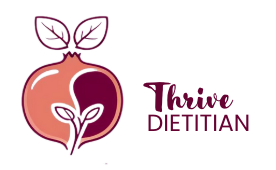How Dietitians Can Help Manage PCOS
Polycystic Ovary Syndrome (PCOS) is one of the most common hormonal conditions affecting women, yet it can feel confusing and frustrating to manage. Symptoms like irregular periods, weight changes, acne, excess hair growth, and difficulty falling pregnant can take a toll—not just physically, but emotionally too.
While there isn’t a “cure” for PCOS, nutrition and lifestyle play a big role in managing symptoms. Working with a dietitian who understands PCOS can help you feel more in control of your health.
How diet affects PCOS
PCOS is influenced by hormones—particularly insulin, which regulates blood sugar. Many women with PCOS have some degree of insulin resistance, meaning their body has to produce more insulin to keep blood sugar stable. This can drive symptoms like weight gain, cravings, and irregular cycles.
The good news? Nutrition can help improve insulin sensitivity, balance hormones, and ease symptoms over time.
How a dietitian can support women with PCOS
1. Balancing blood sugar
Dietitians help you build meals that keep blood sugar steady, which can reduce cravings, improve energy, and support hormone balance. This often means:
Including protein with meals and snacks
Choosing high-fibre carbs (like wholegrains, beans, and vegetables)
Pairing carbs with healthy fats to slow digestion
2. Supporting healthy weight management
Not everyone with PCOS struggles with weight, but for those who do, even a small weight reduction (5–10%) can improve cycle regularity and fertility outcomes. A dietitian helps you reach your goals in a safe, realistic way—without fad diets or strict rules.
3. Reducing inflammation
Many women with PCOS experience chronic low-grade inflammation. A dietitian can guide you towards an anti-inflammatory eating pattern, rich in foods like oily fish, olive oil, nuts, seeds, colourful fruits and vegetables.
4. Addressing nutrient deficiencies
Women with PCOS are more likely to be low in nutrients like vitamin D, omega-3s, and B vitamins. Dietitians can help identify possible gaps and recommend food or supplements if needed.
5. Fertility and menstrual cycle support
If fertility is a goal, dietitians can tailor advice to support ovulation and reproductive health. Improving insulin sensitivity and overall nutrition can make a big difference in menstrual regularity.
6. Personalised, sustainable care
There’s no one-size-fits-all approach to PCOS. A dietitian takes into account your lifestyle, goals, and preferences to create a plan that feels doable—whether that’s meal planning, shopping tips, or help managing emotional eating.
Why choose our clinic?
Our dietitians understand the challenges of living with PCOS. We offer compassionate, evidence-based support to help you manage symptoms, improve your energy, and feel more confident in your body. Whether your goal is fertility, weight management, or simply feeling better day to day, we’re here to guide you.
The bottom line
PCOS can be complex, but you don’t have to manage it alone. With the right nutrition and support, you can improve your symptoms, balance your hormones, and take back control of your health.


